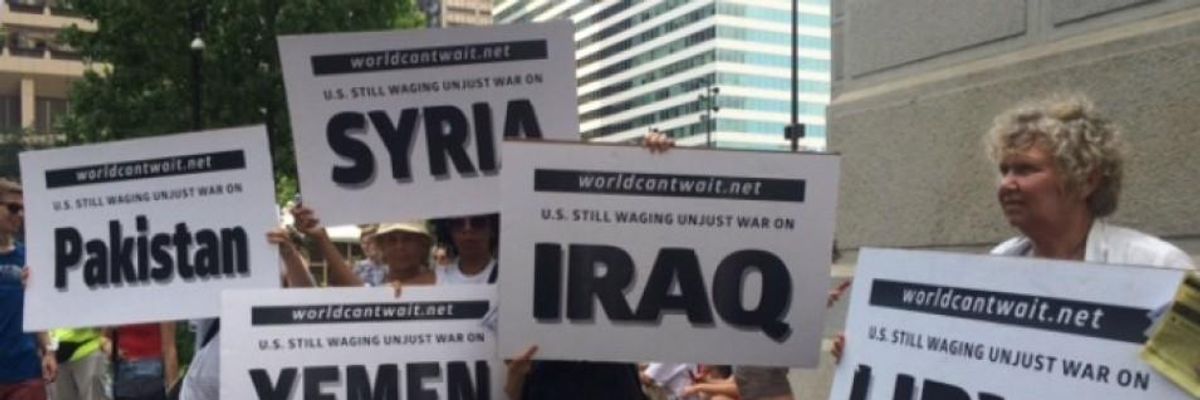"Our war on terror begins with Al Qaeda, but it does not end there," President George W. Bush announced on September 20th, 2001, following the 9/11 attacks.
Bush's "War on Terror" did not end with Al Qaeda - it has roared on into an endless conflict spanning the globe, costing hundreds of thousands of lives and trillions of US taxpayers' dollars.
"Americans should not expect one battle," Bush continued, "but a lengthy campaign unlike any other we have ever seen."
Days later, the Bush administration launched its air war. By the end of 2001, the US had dropped 17,500 bombs on Afghanistan.
The War in Afghanistan is now in its 17th year, making it America's longest war. The Pentagon reports that the Afghan conflict costs US taxpayers $45 billion per year.
The human and economic cost of the post-9/11 US War on Terror has been investigated extensively by the Costs of War Project, based out of the Watson Institute of International and Public Affairs at Brown University.
The Project is made up of researchers, legal experts, human rights officials, and physicians whose focus is to reveal the cost of the post-9/11 wars in Iraq and Afghanistan and the related conflicts in Pakistan and Syria.
Their research findings are staggering.
The Project's investigations show that at least 370,000 people have been killed in the post 9/11 wars. Project researchers explain that it is likely that many more people have died indirectly due to environmental catastrophes, malnutrition, and broken infrastructure tied to the wars.
In addition, over 10 million Afghan, Iraqi, and Pakistani people have been displaced as war refugees.
The Project calculated the US budgetary costs in the post-9/11 wars to be $5.6 trillion. (In the decade after 9/11, US military spending doubled.)
Their research also shed a light on worldwide US military operations, showing that the US conducted counter-terror operations in 76 centuries around the globe from 2015-2017.
The Project developed a map illustrating drone operations, the deployment of troops, locations of military bases, and training programs - all demonstrating the complex global reach of the US War on Terror.
"Either you are with us or you are with the terrorists," Bush ominously warned in his 2001 speech.
It quickly became clear where Bush's line in the sand was drawn with the Patriot Act, Abu Ghraib, Guantanamo Bay, the administration's military operations.
Nearly two decades have passed since 9/11, and the War on Terror appears more like an Endless War.




